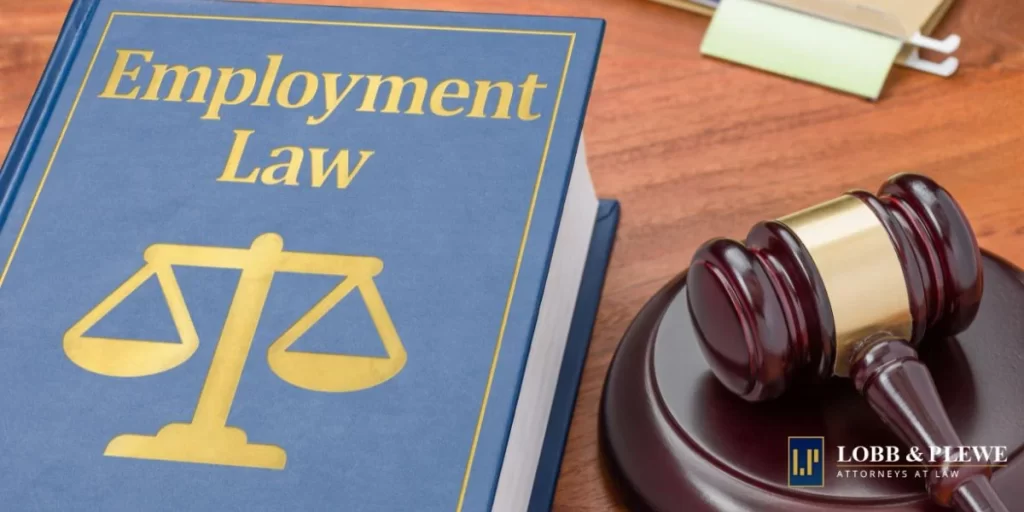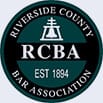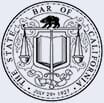Corona Employment Law Attorney
Home / Corona Employment Law Attorney

Corona Employment Law Lawyer
Practice Area
What Are Employees Entitled to Under Employment Law in California?
Employees have the right to be subject to fair employment practices within their job environment, including during an internship or as a prospective candidate interviewing for an open position. California’s Fair Employment and Housing Act (FEHA) requires employers with five or more employees to honor those workers’ protection from discriminatory employment actions that are against a person’s protected characteristics or protected classes.
These protected characteristics include an employee’s:
- Race (including hair texture and other associated traits)
- Color
- Ethnicity
- Country of origin and ancestry
- Sexual orientation
- Sex/gender (identity and expression), including issues regarding or related to pregnancy or childbirth
- Age
- Religion
- Marital status
- Military/veteran status
- Mental or physical disability
- Medical condition
- Genetic information
Discrimination includes denying promotions or workplace opportunities and benefits, wrongful termination, and unequal pay. Workers also have the right to discuss and inquire about their own or a coworker’s wages without fear of retaliation. Current and former employees must also be allowed access to their own personnel files within a reasonable time frame.
Fair employment stipulates that workers must have access to necessary accommodations, such as those for pregnancy or childbirth and related medical conditions. This is also true for qualifying disabled individuals and religious individuals who request accommodations. The employer is obligated to meet these accommodations unless they are able to prove it would cause undue hardship.
Additionally, workers are protected from harassment based on protected qualities, which is a form of illegal discrimination. Employers or supervisors are prohibited from taking retaliatory action against whistleblowers, injured parties who filed for worker’s compensation, employees who openly disagree with present discrimination, any person who reports discriminatory misconduct, or any third party who tries to assist the person who was targeted.
Wages, Work Hours, and Family or Medical Leave Regulations in California
Employees in Corona, CA have the right to fair working hours and breaks that are in accordance with labor laws, as well as the right to be appropriately compensated for their work.
Eligible workers in companies of five or more employees are also to be provided with up to 12 weeks of job-protected leave in a 12-month period for qualifying health and family events and emergencies; they are also awarded temporary (up to 8 weeks) paid family leave when eligible and up to 40 hours of paid sick leave for qualifying events.
Employees impacted by a nonwork-related injury or illness, including those related to pregnancy, are entitled to State Disability Insurance, which provides partial wage replacement when they are unable to work according to normal standards. This also applies if the employee’s family member is ill or injured. Qualifying employees, as well as their eligible dependents, under group health plans, are to be offered continued coverage according to the California Continuation Benefits Replacement Act.
Fair compensation includes being paid at least the state’s minimum wage ($16.00 per hour worked) for hours worked up until 40. Employees must be paid overtime for working over 40 hours in one workweek, over eight hours in a workday, and/or working a seventh consecutive day in a workweek. Workers must be paid in cash, checks that can be cashed in full, or direct deposit if authorized by the employees.
Shifts lasting more than five hours require a meal break of no less than 30 minutes; shifts exceeding 10 hours constitute a second meal break of the same duration. Workers are legally entitled to one hour of pay for each qualifying workday for which a rest period is not provided. Employees who are breastfeeding are required access to breaks of a reasonable amount of time as often as the worker expresses the need to.
All federal child labor laws apply, in addition to state mandates that require all minors to have a work permit. Minors under 16 are prohibited from working in jobs or industries that involve several types of machines, railroads, scaffolding, tobacco, dangerous acids, and other hazards. Working time restrictions vary for minors aged 12/13, 14/15, and 16/17 years of age. The state also has extensive regulations specific to the entertainment industry.
What Is Allowed and Required of Me as an Employer in CA?
As mentioned, employers in California are required to see that their workers’ rights, such as the right to leave, fair compensation, and not to face discrimination or harassment, are upheld and not violated. It’s true that the responsibilities of employers and/or owners are extensive, but their position as custodians over their company and existing employees also grants them certain liberties as well.
Employers have at-will employment power, meaning they can make precautionary inquiries into a potential candidate before hiring them, as long as they act in accordance with the outlined mandates and without certain discriminations when making an employing decision. For example, certain criminal histories, such as arrests without a conviction, pre-/post-trial diversion programs, and convictions that were sealed/expunged, cannot influence hiring decisions.
Business owners are allowed, when prior notice is provided, to submit applicants to drug testing and credit, background, or criminal history checks when necessary and directly related to the job. Adverse actions based on credit must be brought to the interviewee’s attention. The decision to hire a candidate cannot include considerations of juvenile arrests or non-felony marijuana possession convictions over two years old.
Employers cannot ask verbally or in writing about a candidate’s salary history but can rely on information that was disclosed voluntarily and unprompted. They cannot rely solely on prior salary to justify disparities in compensation nor consider their salary history in deciding whether to hire them or what salary to offer. Employers must provide the position’s pay scale should the applicant reasonably request.
Business owners must maintain a work environment in accordance with the Occupational Safety and Health Act and develop a written, sufficient Injury and Illness Prevention Program that includes instructions for safe workplace practices. Owners must also take reasonable measures to deter smoking and concealed carry inside the workplace, such as by posting signs.
In addition to being allowed at-will termination and requesting good faith references, employers must also provide ex-employees with timely final pay, including unused vacation time and notice in advance in the event of mass layoffs.
Common Forms of Employment Law Litigation Cases in CA
Employment regulations are a widely-ranging and complex area of the law where legal disputes are far from uncommon. The following are some common employment litigation cases seen across different industries of business:
- Claims of discrimination and/or harassment against an employee’s protected classes (e.g., race, sex, sexual orientation and gender identity, pregnancy, disability, age, religion, military status).
- Accusations of an employer or supervisor taking retaliatory action against an employee’s legally protected actions. This entails the worker being punished through adverse employment actions.For example, should an employee file a complaint that they were not appropriately compensated for working overtime, it could be retaliation for the employer to demote them.
- Matters concerning wage and hour violations, including claims of unequal pay (discrepancies in payment for substantially similar work that’s based on sex or race/ethnicity).Examples include workers not getting paid for missed meal breaks they couldn’t take or using a different pay scale for men and women.
- Hostile workplace/sexual harassment. If employers fail to take action against abuse committed by other workers, or if they themselves were the offender, they can be held liable.
- Filings for worker’s compensation and/or workplace personal injury claims.
- Claims the employer engaged in wrongful termination. Employees cannot be fired in retaliation or for discriminatory reasons; the terms of their employment contract also cannot be violated.
What Can an Employment Law Attorney Do to Help My Situation?
In Corona, California, employment lawyers are thoroughly trained with a deep understanding of labor laws and regulations, which can be greatly varied and challenging to address comprehensively when crafting a business. Hiring a legal professional can help you regardless of the size of your company or the type of employment issue.
Capable labor law attorneys are extensively experienced in a variety of employment circumstances and have strong negotiation skills they can utilize to settle your case early in the proceedings or acquire you a successful outcome that keeps your business protected. An employment law attorney will use their passionate diligence to fight for your rights and a fair resolution.
An employment attorney can also assist you in preparing against potential future litigation issues by reviewing your employment contracts and drafting up new policies that ensure clarity of both employer and employee rights within a specific issue. Additionally, they can include policies that provide sufficient coverage or a course of action for multiple possible legal scenarios. Skilled legal professionals who serve employers under employment law are focused on the specific needs and obligations of business owners.
An employment attorney knows how to effectively address the numerous issues that can result from a legal dispute, such as ensuring contracts accurately convey terms of compensation, include policies regarding intellectual property rights, and protect your industry trade secrets. Your lawyer can also review and amend your background checking and hiring process to effectively determine whether a potential hire could be a risk to your company.
FAQs
Q: What Rights Does an Employer Have in California?
A: California employers have many duties to uphold according to labor laws, but they also have certain rights in the protection of their business, such as background checks and other inquiries during the hiring process. Business owners are also legally allowed to defend themselves during legal disputes if they did not break any employment laws or were misunderstood. For example, if a worker claims unequal pay, the employer can provide evidence that the discrepancy was because of seniority.Q: What Is the Two-Hour Pay Rule in California?
A: California’s two-hour pay rule refers to the policy of reporting time pay. In the event that an employee is scheduled and reports to work but leaves before half of their shift has concluded as a result of insufficient workload or without proper notice, they must be compensated for reporting to work. The employer is to pay the worker for the time they did work plus two to four hours of reporting time pay, depending on the circumstances.Q: What Should I Do if One of My Workers Experienced an Employment Law Issue?
A: If an employee experienced an ethical issue at work, proceed to carefully investigate the matter to determine if other workers were involved and liable. In addition to taking sufficient direct action to correct the mistreatment and prevent further misconduct, contact an employment law firm that can assist you in ensuring all proper steps are taken. Other tips include collecting and preserving any relevant evidence to the claim, submitting your own claim to the insurance provider, and reviewing your company policies.Q: What Are the Fair Labor Laws for Employees in California?
A: In California, fair labor laws that each business owner and/or employer should not infringe upon include workers’ protection from discrimination or harassment based on protected characteristics, the right to be free from retaliatory action for protected actions (whistleblowing), the right to receive fair wages and hours, and the right to take qualifying leave/time off with eligible benefits.Talk With Us When Facing Employment Law Issues
At the law firm of Lobb & Plewe, our professional legal team is prepared to support your business by preventing potential employment issues and handling your employment law litigation case. Speak with a skilled employment lawyer who’s qualified and experienced in representing employers.
Corona Practice Areas
Our Attorneys
Let's Connect
- 951-788-9410
-
4160 Temescal Canyon Rd.
Suite 202
Corona, CA 92883
Newsletter

















